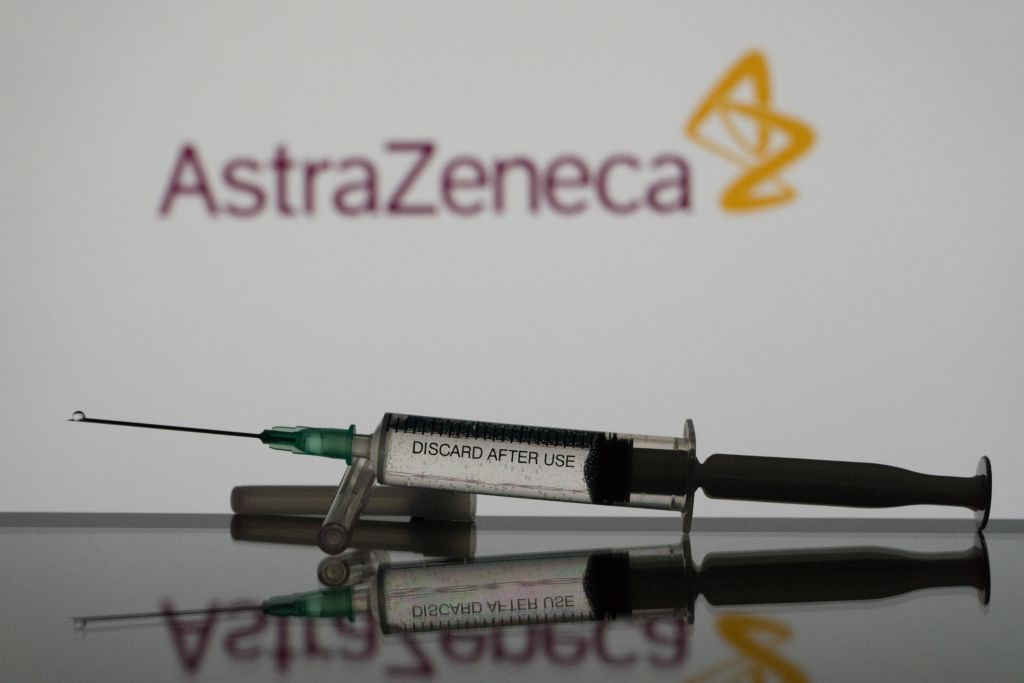Internet users have recently taken quotes from a leading immunologist out of context, using his words to push a false claim that the AstraZeneca COVID-19 vaccine “sterilizes” those immunized. While the immunologist cited—Sir John Bell, president of the Ellison Institute for Technology at Oxford University—did use the word “sterilize” in an August 2020 interview while discussing COVID-19 vaccine research, his other comments make clear that he was using it in the context of safeguarding the body from infectious disease
That hasn’t stopped internet users from claiming Bell used “sterilization” within a more sinister context. Frank Bergman, writing in the blog Slay News, misled readers by claiming Bell said the COVID-19 vaccine would cause infertility among vaccine recipients.
“A leading vaccine scientist who played a key role in the development of Covid shots has admitted that the injections are designed to ‘sterilize’ the general public,” Bergman wrote. “The damming [sic] admission was made by Professor Sir John Bell, a key figure in the development of Oxford University‘s Covid ‘vaccine.’” Bergman continued: “During a recent interview with UK TV network Channel 4, Prof. Bell appeared to let slip that the Oxford/AstraZeneca injection is capable of sterilizing between 60 and 70 percent of recipients.”
The X account “Sudden and Unexpected,” which has previously posted misinformation regarding the COVID-19 vaccines as recently as last month to its 250,000 followers, tweeted an excerpt of Bergman’s blog post with a link to the article.
The X account “Blue Sky,” which has no affiliation with the Bluesky social media platform, shared a clip of Bell’s interview along with a misleading caption: “During a seemingly routine interview, Professor Sir John Bell, a key figure in the development of the Oxford vaccine, accidentally let slip a jaw-dropping bombshell that left the world in disbelief. Caught off guard, Bell revealed the unthinkable: ‘Sterilizing 60 to 70% of the world’s population.’”
In an August 2020 interview with a United Kingdom public broadcast station, Channel 4, television anchor Jon Snow asked Bell when a COVID-19 vaccine might become available to the U.K. public. Bell responded,
A lot of this depends on the intensity of the infection. So, in order to get a readout, you have to have a certain number of incident cases in the control vaccine population, and that then tells you you can look at the real vaccinated population and see whether they have been protected. So, I’m hoping that’s going to happen pretty smartly this autumn. But then, don’t forget, these vaccines are unlikely to completely sterilize the population. They are very likely to have an effect which works in a percentage—say, 60 or 70 percent—we will have to look quite carefully, and the regulators will have to look quite carefully to make sure it’s done what we need it to do before it gets approved.
Given the context of the televised interview, it is clear Bell used the word “sterilize” to describe protecting the population from the COVID-19 virus. When Bell says “these vaccines are unlikely to completely sterilize the population,” he means that the COVID-19 vaccines alone would not eradicate COVID-19 infections in the human population, and that a minority share of those immunized against COVID-19 would likely still be susceptible to contracting and transmitting the virus.
In November 2020, AstraZeneca—which developed a COVID-19 vaccine jointly with Oxford University—announced that the vaccine had an average efficacy rate of 70 percent. That figure was determined based on interim analysis of two separate group trials. The first one, which had a sample size of 2,741 subjects and gave recipients one half-dose followed by a full dose at least one month later, had an efficacy rate of 90 percent. The second group, with a sample size of 8,895 subjects and which injected recipients with two full doses at least one month apart, had an efficacy rate of 62 percent. Soon after, in December 2020, the U.K. government authorized the Oxford-AstraZeneca COVID-19 vaccine for public use.
The Oxford-AstraZeneca vaccine was a viral vector vaccine, which uses the body’s cells to create antigens. AstraZeneca took the vaccine off the market in May 2024, but not because of any safety issues. The company said the decision was made in response to declining demand.
Bell did not immediately respond to a request for comment.
If you have a claim you would like to see us fact check, please send us an email at factcheck@thedispatch.com. If you would like to suggest a correction to this piece or any other Dispatch article, please email corrections@thedispatch.com.










Please note that we at The Dispatch hold ourselves, our work, and our commenters to a higher standard than other places on the internet. We welcome comments that foster genuine debate or discussion—including comments critical of us or our work—but responses that include ad hominem attacks on fellow Dispatch members or are intended to stoke fear and anger may be moderated.
With your membership, you only have the ability to comment on The Morning Dispatch articles. Consider upgrading to join the conversation everywhere.